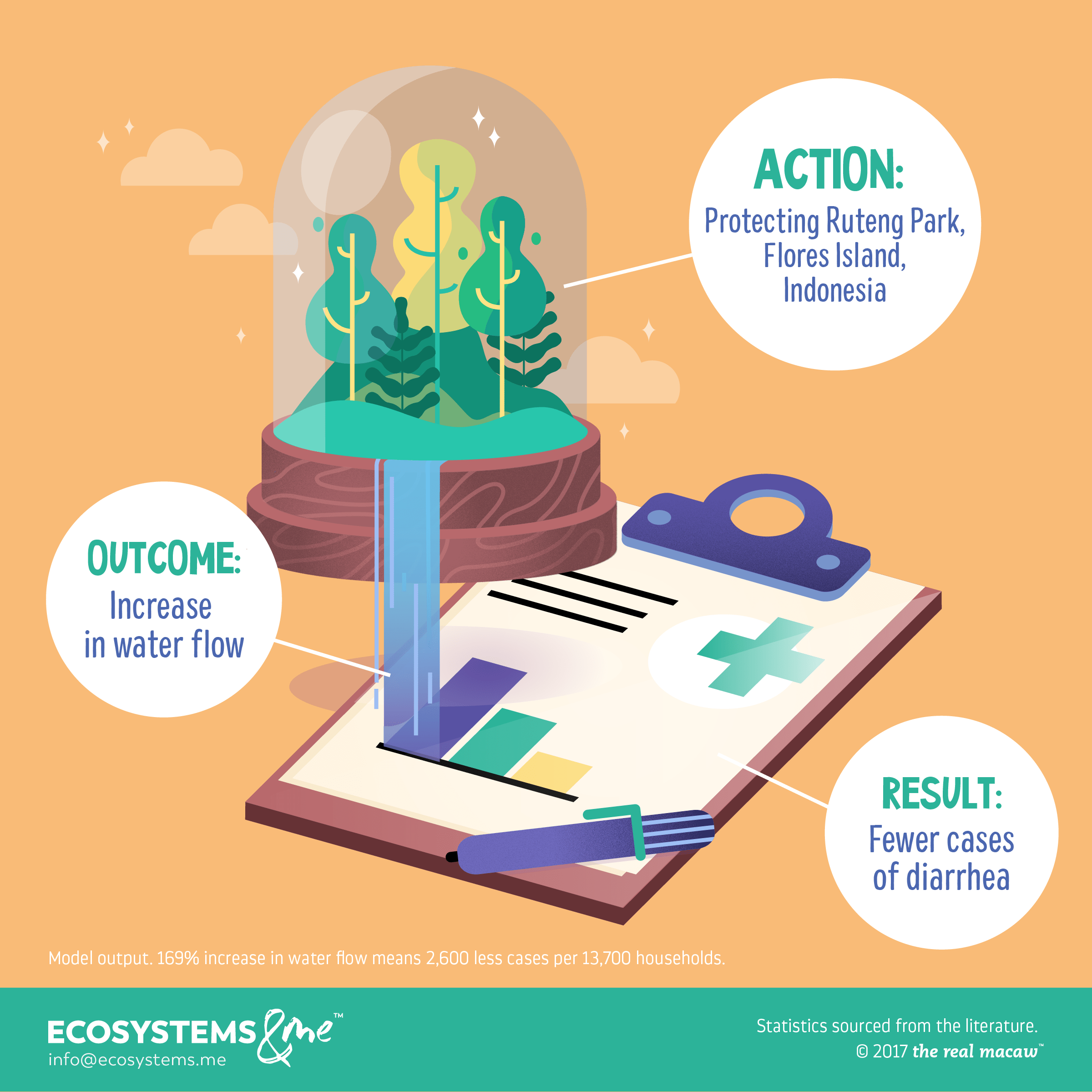
Rural citizens can’t just turn on their tap for water. To be fair, water never ‘just’ comes from a tap no matter who and where you are – there’s always an ecosystem behind your water supply. But rural people don’t have reservoirs or water treatment systems, so they rely on natural sources like rivers, lakes, or ponds for clean drinking water. In Indonesia, protected forests in Ruteng Park on Flores Island protect water flows that supply indigenous villages on the edge of the park. And that means less disease.
Flores Island forests, Ruteng Park, and water
Forests are important to water supply for a few reasons. They intercept water, reducing flooding risk, and in some cases they can improve water flow during the dry season. (For more detail, see the ecosystem services explainer.) Forests also filter pollutants out of the water, keeping it clean. And plant roots help to keep soil in place, stopping it from washing into rivers and clogging them up. As you can imagine, that wouldn’t be great for water quality.
Rural citizens can’t just turn on their tap for water.
Much of Flores Island, including Ruteng Park, is forested and mountainous, with steep slopes, tree cover, and thick soils – perfect terrain for maintaining and providing water. As you might expect, Ruteng Park’s forests are a major water source for nearby villages – in fact, deforestation has been linked to many droughts in these villages. Several thousand of the indigenous Manggarai people live near the Park; most of them are small farmers, also known as smallholders. Protecting the forests protects their water supply.
(Incidentally, did you know that Flores Island is also one of the few places you can find the Komodo dragon in the wild, outside of Komodo itself?)
Water supply and disease
Water in Indonesia is a major problem even in urban areas. In rural areas like Ruteng Park that rely on natural sources and have very little infrastructure, a clean water supply is all the more important. Without it, more people get sick from diseases like diarrhea – especially babies and children.
Protected forests in Ruteng Park improve water supply, reducing disease.
Dirty water causes these for obvious reasons. But water quantity is also important, because higher water flows mean that more water is available for washing and bathing. More water also washes out more pollution and waste. So, all together, higher water flows should improve water quality and reduce diarrhea.
Running water flow changes through a model shows exactly that. And since protecting the park’s forests improves water flows, protecting the forests also reduces disease.
